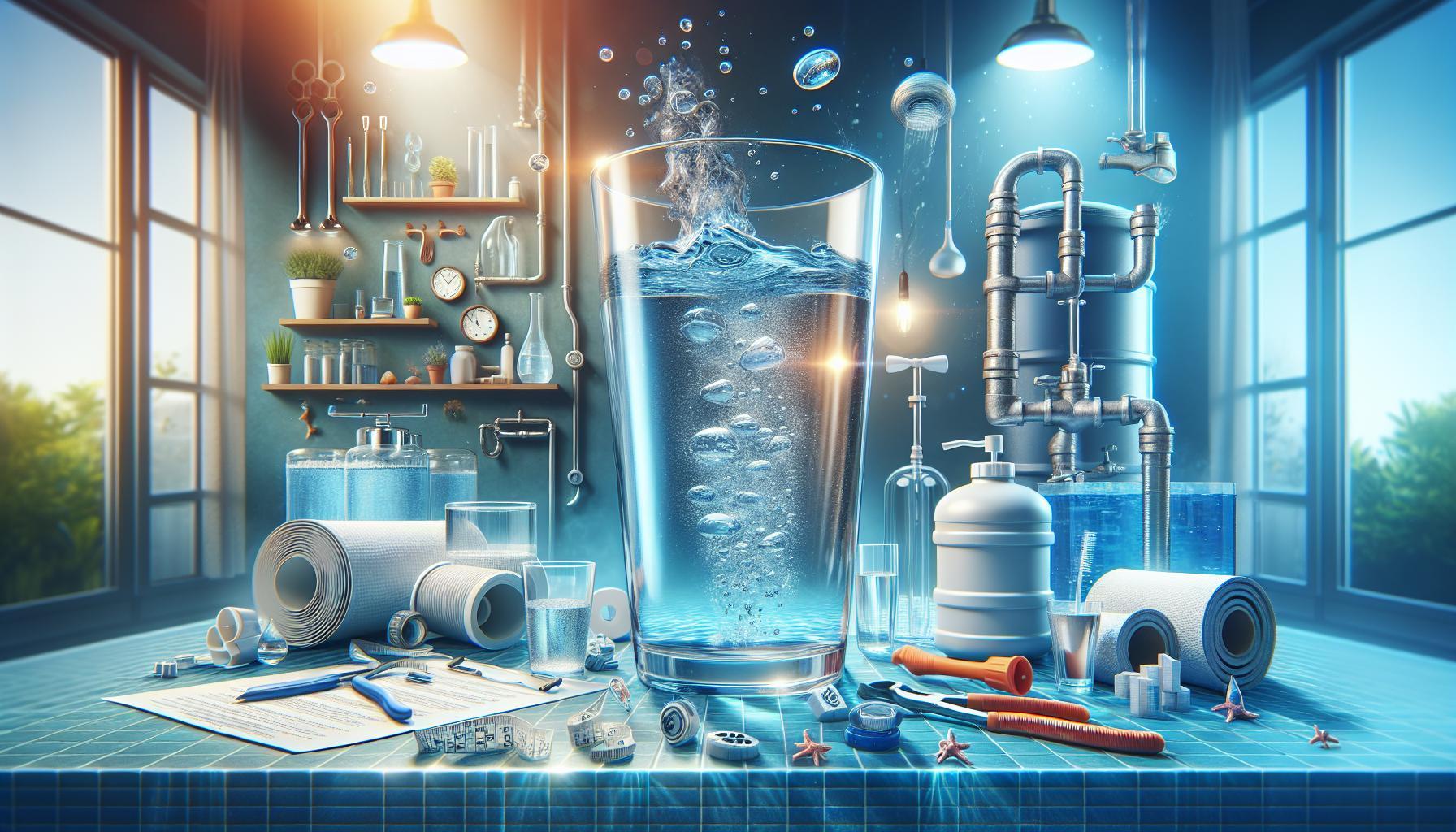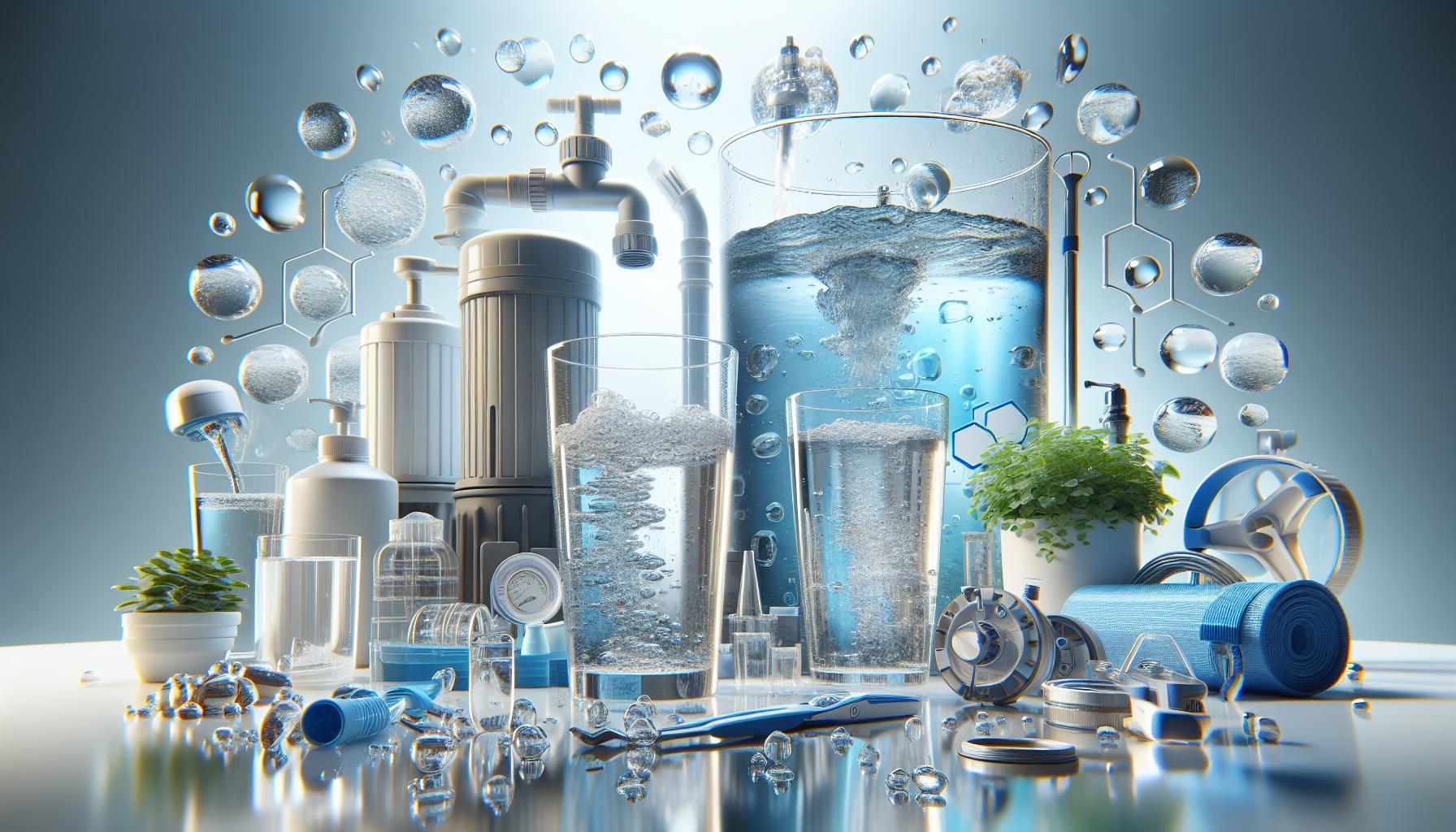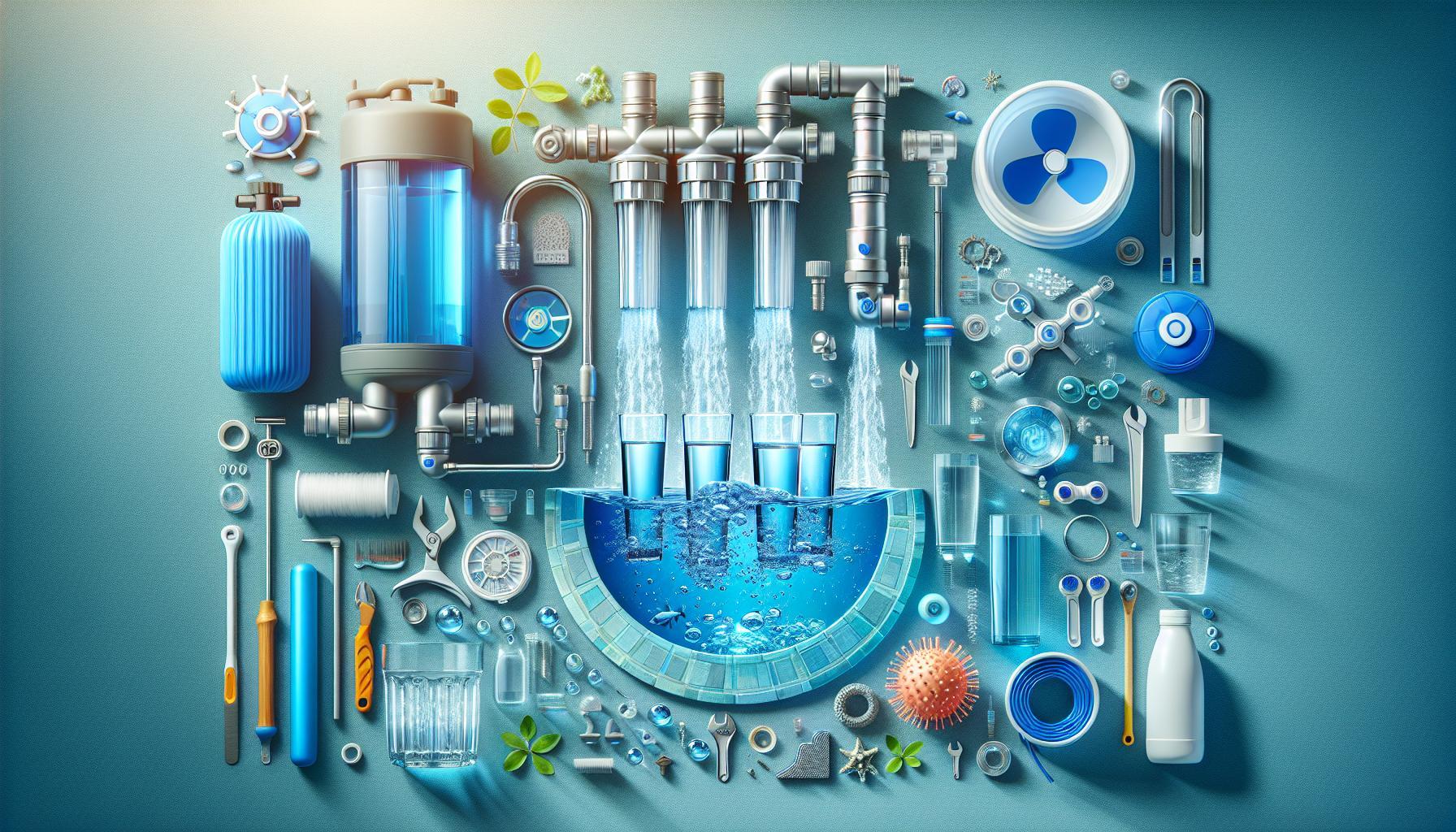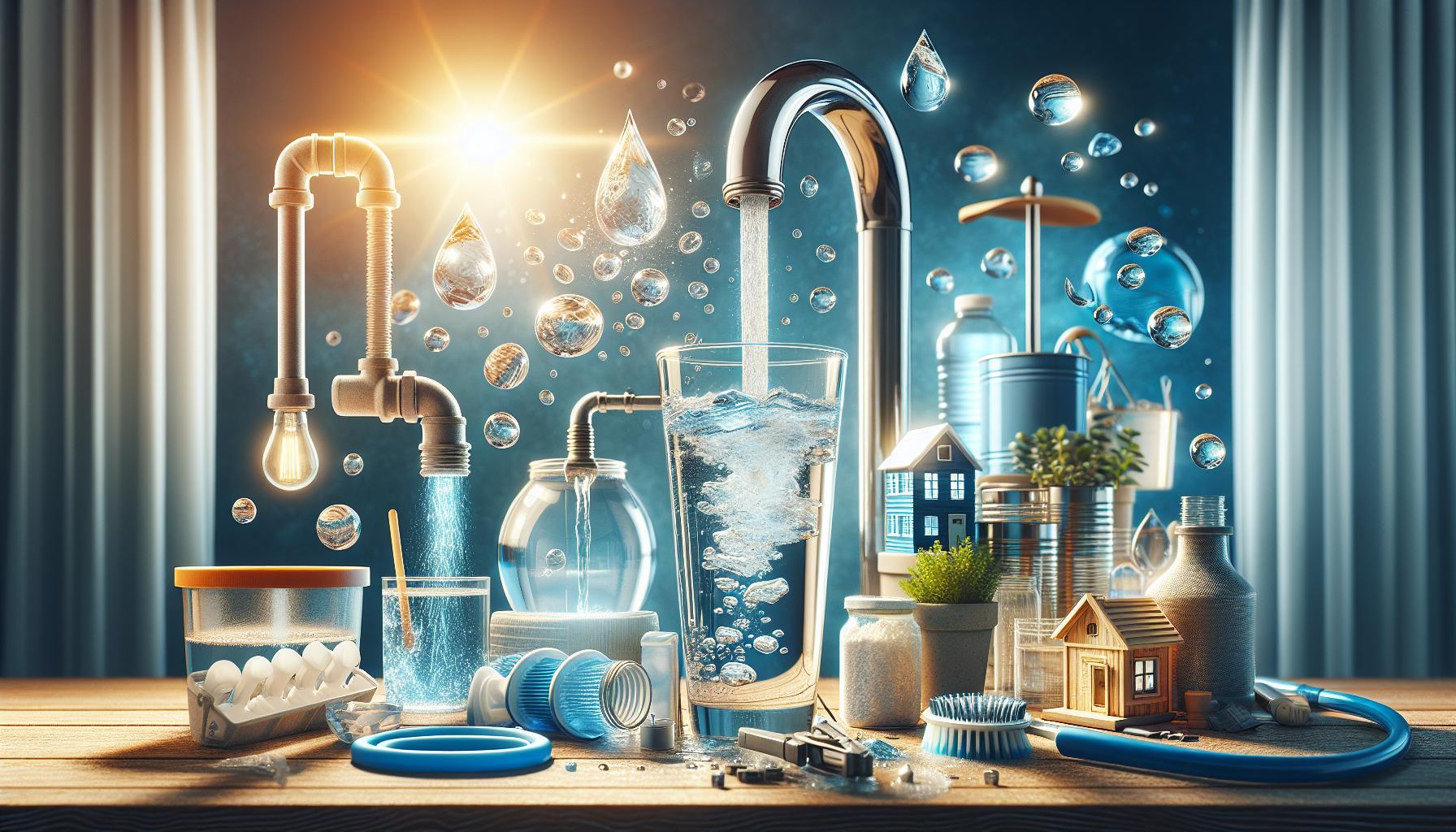Have you ever wondered if sipping cold water can trigger that uncomfortable sensation known as heartburn? This article delves into common misconceptions about hydration and digestive health, providing clarity on this prevalent concern. Understanding the true relationship between temperature and heartburn is essential for managing your digestive well-being effectively.
Understanding Heartburn: What Happens in Your Body?
When stomach acid backs up into the esophagus, it triggers a series of reactions that manifest as discomfort known as heartburn. But what exactly is happening in the body during this episode? Heartburn occurs primarily due to the malfunction of the lower esophageal sphincter (LES), a band of muscle at the bottom of the esophagus that usually closes tightly after food passes into the stomach. When the LES is weakened or relaxed, it can allow stomach contents, including acid, to flow back up into the esophagus, leading to the characteristic burning sensation.
Some common triggers of heartburn include certain foods, eating habits, and even emotional stress. When discussing the question of whether cold water causes heartburn, it’s vital to note that individual reactions can vary. While some people report discomfort after consuming cold beverages, for many others, cold water does not impact LES function or exacerbates reflux symptoms. Understanding what happens internally can help manage and prevent symptoms more effectively.
Factors Influencing Acid Reflux
Digestive dynamics and lifestyle choices significantly affect heartburn. Here’s how various factors can come into play:
- Diet: Foods high in fat, spices, chocolate, and caffeine can relax the LES.
- Body Position: Lying down after eating can increase acid reflux, as gravity no longer assists in keeping stomach contents down.
- Overeating: Large meals place pressure on the LES, increasing the chances of reflux.
- Stress and Anxiety: These emotional factors can alter digestion and trigger heartburn.
To mitigate the discomfort associated with heartburn, consider practical steps such as eating smaller meals, avoiding known trigger foods, and remaining upright for a few hours after eating. Additionally, staying hydrated with water—whether cold or at room temperature—can aid digestion, though individual comfort should guide choices. Understanding how these elements work together in your body can empower you to make informed dietary and lifestyle changes tailored to your needs.
The Role of Temperature in Digestion: Cold Water Explained

Understanding how temperature affects digestion can shed light on common debates surrounding food consumption and hydration. For many, sipping cold water during meals is a refreshing choice, but can it impact our digestive health? The debate often piques curiosity—especially in the context of whether cold water might contribute to heartburn, as discussed in the broader context of “Does Cold Water Cause Heartburn? Myths and Medical Facts.”
The effects of temperature on digestive enzymes
The human body relies on enzymes to break down food effectively, and temperature can influence these processes. When cold water enters the stomach, it may temporarily alter the stomach’s temperature, potentially affecting the action of digestive enzymes. Though research directly correlating cold water consumption with negative digestive outcomes is limited, here are a few implications to consider:
- Slowed digestion: Some proponents of warm water suggest that colder temperatures may slow the digestive process. Warm water is said to help dissolve fats and ease the passage of food through the digestive tract.
- Contrary opinions: Conversely, cold water can stimulate hydration and may even assist in regulating body temperature. Proper hydration is essential for optimal digestive function, irrespective of water temperature.
Cold beverages and esophageal reactions
Individuals susceptible to heartburn might perceive that drinking cold water exacerbates their symptoms. This intuition often stems from personal experiences rather than robust scientific evidence. However, several factors can contribute to the perception of discomfort:
- Upper esophageal sphincter sensitivity: Some research suggests that extreme temperatures may influence the sensitivity of the esophagus, making it more prone to reactions, especially in GERD (Gastroesophageal Reflux Disease) patients.
- Inflammatory factors: Cold drinks might cause a momentary tightening of the esophagus in sensitive individuals, potentially leading to discomfort reminiscent of heartburn.
In conclusion, while enjoying a cold drink with your meal is a common practice, it’s crucial to be mindful of your body’s responses. If you find that cold water coincides with digestive discomfort or heartburn, consider experimenting with warmer temperatures in your beverages. Each person’s digestive experience is unique, and paying attention to those signals can help foster better digestive health over time.
Debunking Myths: Does Cold Water Really Trigger Heartburn?

It’s a common belief that drinking cold water can set off heartburn, a condition characterized by a burning sensation in the chest caused by acid reflux. However, this notion is more myth than fact. Understanding why this belief persists requires delving into the mechanics of digestion and the factors that truly contribute to heartburn.
Many people misattribute their heartburn to the temperature of their beverages, but research suggests that the actual causes of heartburn are more complex. The sphincter muscle at the base of the esophagus plays a crucial role in preventing stomach acids from escaping into the esophagus. When this muscle weakens or relaxes abnormally, heartburn can occur regardless of whether you drink cold, warm, or hot liquids.
What Really Contributes to Heartburn?
To clarify misconceptions surrounding cold water and heartburn, it’s essential to look at the actual risk factors that can lead to this uncomfortable condition:
- Acidic Foods: Citrus fruits, tomato products, and vinegar can contribute to acid reflux.
- Fatty Foods: High-fat meals slow digestion, increasing the likelihood of reflux.
- Overeating: Large meals can put pressure on the stomach, pushing acids back up the esophagus.
- Certain Beverages: Carbonated drinks and those with caffeine, like coffee, can trigger symptoms.
- Smoking and Alcohol: Both weaken the esophageal sphincter and increase acid production.
While cold water may not directly cause heartburn, certain behaviors associated with consuming cold beverages can heighten the risk. For example, consuming large quantities of cold fluids during a meal may contribute to overeating, leading to increased pressure on the stomach.
Practical Advice to Alleviate Heartburn
For those looking to minimize heartburn, focusing on dietary choices and lifestyle habits can be more effective than obsessing over the temperature of liquids. Here are some practical steps you can take:
- Stay Hydrated: Sip water throughout the day, but avoid large volumes during meals.
- Limit Trigger Foods: Monitor your diet and identify which foods exacerbate your symptoms.
- Eat Smaller Portions: Reduce meal sizes to ease digestive pressure.
- Elevate the Head While Sleeping: This can help prevent nighttime acid reflux.
Ultimately, understanding the myths surrounding cold water and heartburn empowers individuals to take control of their health. Rather than worrying about the temperature of your drink, focus on maintaining a balanced diet and avoiding behaviors that could worsen acid reflux.
Expert Insights: When to Use Cold Water and When to Avoid It

Understanding the impact of cold water on our digestive health is crucial, especially for those who suffer from heartburn. It’s a common misconception that cold water can directly cause heartburn, leading many to avoid it altogether during meals. However, the realities are nuanced. Loaded with myths and medical facts, the debate surrounding the use of cold water can significantly influence dietary choices and digestive comfort.
When Cold Water Can Be Beneficial
In specific situations, cold water can actually aid digestion and help relieve discomfort:
- Hydration: Consuming cold water can be a refreshing way to stay hydrated, especially during hot weather. Proper hydration helps maintain optimal digestive function.
- After Exercise: Cold water post-workout can help lower body temperature and restore hydration levels without compromising the digestive process.
- Before Meals: Drinking a small amount of cold water before a meal can stimulate saliva production, aiding in the initial digestion of food.
Studies suggest that while some people experience heartburn after consuming cold beverages, this is often linked to individual digestive conditions rather than a universal truth. For instance, individuals with sensitive stomachs or certain gastrointestinal disorders may find that cold water can exacerbate their symptoms.
When to Avoid Cold Water
On the other hand, there are situations when it’s wise to steer clear of cold water, particularly for those prone to heartburn:
- During Meals: Cold water can cause food to solidify or take longer to digest, potentially leading to feelings of fullness or discomfort that may provoke heartburn.
- With Acidity: If you have a history of acid reflux or heartburn, it’s generally advisable to avoid cold beverages, as they might chill the digestive tract and provoke imbalances.
- Following Heavy Meals: After consuming a large or fatty meal, drinking cold water can cause the digestive enzymes to slow down, potentially aggravating symptoms for those with sensitivities.
Practical Advice
Understanding the right moments to consume cold water can empower individuals to make better dietary choices that promote digestive health. Here are some actionable tips:
| Situation | Recommendation |
|---|---|
| Before Exercise | Opt for room temperature or warm water. |
| Post-Workout | Cold water is acceptable to rehydrate. |
| During Meals | Prefer warm or room temperature beverages. |
| When Experiencing Heartburn | Limit cold drinks and consider herbal teas. |
By discerning when to embrace or avoid cold water, individuals can take proactive steps in managing their digestive health and mitigating the potential risks associated with heartburn. It’s essential to listen to your body and, when in doubt, consult with a healthcare provider to tailor hydration choices that work best for your unique digestive needs.
Alternative Triggers of Heartburn: Beyond Temperature
Many believe that temperature plays a critical role in triggering heartburn, but this condition is influenced by a host of factors beyond just what you drink. Understanding the diverse triggers of heartburn can empower individuals to manage and prevent discomfort more effectively. Research suggests that certain foods, lifestyle choices, and medications can significantly impact heartburn symptoms, adding to the complexity of this common ailment.
- Dietary Components: Certain foods are notorious for exacerbating heartburn. High-fat meals, spicy dishes, and acidic foods such as citrus fruits and tomatoes can relax the lower esophageal sphincter, allowing stomach acid to surge back into the esophagus. Sugar and caffeine are also significant contributors to heartburn, leading to increased gastric acid production.
- Alcohol and Smoking: Consumption of alcohol can impair muscle function in the esophagus and increase acid production. Similarly, smoking weakens the esophageal sphincter, rendering it easier for acid to escape from the stomach.
- Stress and Anxiety: Emotional stress and anxiety can intensify heartburn symptoms. When stressed, the body produces more cortisol, leading to increased acid production and digestive issues.
- Physical Factors: Certain body positions and tight clothing can influence heartburn. Lying down soon after eating or wearing tight belts can put extra pressure on the stomach, promoting acid reflux.
Medications to Watch Out For
Some over-the-counter and prescription medications are known to contribute to heartburn. Common culprits include:
| Medication Type | Examples |
|---|---|
| Nonsteroidal anti-inflammatory drugs (NSAIDs) | Aspirin, Ibuprofen |
| Certain blood pressure medications | Calcium channel blockers |
| Antidepressants | Tricyclics |
| Muscle relaxants | Carisoprodol |
Awareness of these alternative triggers can help individuals make informed choices that minimize the risk of heartburn. Keeping a food diary to track which foods or behaviors worsen symptoms may also provide valuable insights for effective management. By proactively identifying and addressing these triggers, people can enjoy their meals and activities with less discomfort, debunking the myth that only cold beverages are to blame for heartburn.
Hydration Tips for Easing Digestive Discomfort
Staying properly hydrated is crucial for maintaining digestive health and alleviating discomfort. Understanding the myths surrounding hydration, such as whether cold water could lead to heartburn, can empower individuals to make smarter choices. While the prevailing belief might suggest that cold water aggravates digestive issues, scientific evidence does not support this notion, and proper hydration remains a pivotal part of digestion.
To ease digestive discomfort effectively, consider the following tips that focus on hydration:
- Opt for room temperature or lukewarm water: While cold water is generally safe, some people find that room temperature water can be gentler on the stomach, especially during meals.
- Incorporate hydrating foods: Foods with high water content, such as cucumbers, oranges, and soups, not only help in keeping you hydrated but also support digestion. These can act as natural buffers in the stomach.
- Space out fluid intake: Drinking large amounts of water at once, especially during meals, may dilute stomach acids and hinder digestion. Instead, sip water steadily throughout the day.
- Balance electrolytes: Consuming beverages that include electrolytes, such as coconut water or electrolyte-infused drinks, can improve hydration levels and promote digestive efficiency.
### Recognize Your Body’s Signals
Listening to your body’s hydration cues can significantly impact your digestive health. Signs of dehydration include dry mouth, fatigue, and decreased urine output. When you feel these signs, prioritize sipping water gradually instead of consuming large quantities all at once.
### Practical Daily Goals
Implementing a simple hydration plan can make a world of difference:
| Time of Day | Hydration Tip |
|---|---|
| Morning | Start your day with a glass of lukewarm lemon water to stimulate digestion. |
| Midday | Pair meals with moderate hydration—sip water but avoid drinking massive amounts. |
| Afternoon | Snack on hydrating fruits like watermelon or strawberries to replenish fluids. |
| Evening | Limit fluid intake right before bed to prevent nighttime discomfort. |
By incorporating these practical hydration tips into your routine, you can bolster digestion and alleviate symptoms that may arise during mealtime, debunking the myth about the impact of cold water on heartburn. Staying well-hydrated is essential for overall health, helping to ensure that your digestive system functions optimally.
The Science Behind Heartburn: Separating Fact from Fiction
The human digestive system is a marvel of biological engineering, coordinating the complex interplay of hormones, muscles, and enzymes to turn food into energy. However, this intricate system occasionally misfires, leading to uncomfortable conditions such as heartburn. Many myths surround this condition, including whether drinking cold water can trigger heartburn. By distinguishing between fact and fiction, we can demystify this common issue.
Understanding Heartburn
Heartburn occurs when stomach acid flows back up into the esophagus, the tube connecting your mouth and stomach. This reflux can cause a burning sensation in the chest or throat. To understand the influence of factors like temperature on digestive health, it’s important to look at the science behind heartburn.
- Acidity Levels: The stomach is designed to operate efficiently with acid, but certain foods and habits can exacerbate reflux.
- Lower Esophageal Sphincter (LES): The LES is a muscle that closes off the esophagus from the stomach. Weakness here can lead to acid reflux.
- Temperature Effects: Contrary to popular belief, the temperature of the water consumed is far less significant than how it interacts with the LES and the overall diet.
Myths About Cold Water and Heartburn
One prevalent myth is that drinking cold water can trigger heartburn, but medical research provides a different perspective. Cold water does not directly influence stomach acidity or the function of the LES. While some individuals may feel discomfort after consuming cold beverages, this reaction is often linked more to the type of food consumed or the volume of liquid rather than the temperature itself.
| Myth | Fact |
|---|---|
| Cold water can cause heartburn. | Cold water does not have a direct impact on heartburn; dietary choices and meal timing are more crucial. |
| Drinking water during meals leads to heartburn. | Drinking moderate amounts of water can aid digestion and dilute acidic contents, potentially reducing heartburn. |
| Spicy foods are the only culprits of heartburn. | While spicy foods can trigger symptoms, factors like fatty foods, caffeine, and citrus are also significant contributors. |
Understanding the relationship between food, beverages, and heartburn is critical for managing symptoms. Individuals who experience frequent heartburn may benefit from keeping a food diary to identify specific triggers in their diet. While cold water does not cause heartburn, it’s essential to pay attention to how different foods and drinks interact with your digestive system to promote overall digestive health.
Faq
Does Cold Water Cause Heartburn?
No, cold water does not directly cause heartburn. Heartburn is typically caused by acid reflux, where stomach acid backs up into the esophagus. While cold water may temporarily soothe irritation, it is not a primary cause of heartburn.
Factors like diet, overeating, and lifestyle choices are more significant contributors to heartburn. While some people might report discomfort after drinking anything too cold, it’s usually due to other underlying conditions. For more insights, see our detailed section on lifestyle factors and heartburn.
Why Does Cold Water Sometimes Trigger Heartburn Symptoms?
In some instances, cold water may cause a temporary shock to the stomach. This can lead to a release of stomach acids, which might trigger acid reflux in sensitive individuals.
However, this sensitivity varies from person to person. If you experience heartburn after drinking cold water, it may be linked to personal dietary habits or digestive issues rather than the water temperature itself.
Can I Drink Cold Water If I Suffer from Heartburn?
Yes, drinking cold water is generally safe for those with heartburn. Hydration is crucial, and cold water can help soothe your throat and esophagus temporarily.
However, if you notice a pattern where cold water worsens your symptoms, consider letting it warm to room temperature first. It’s essential to recognize your body’s signals.
What Are Common Triggers for Heartburn?
Common triggers of heartburn include spicy foods, citrus, and fatty meals. These foods can increase stomach acid and lead to reflux, making them more significant issues than water temperature.
Lifestyle factors like stress and eating late at night also play a role in heartburn symptoms. For a more complete list of factors affecting your heartburn, consider exploring the section on diet and lifestyle changes.
What is the Best Way to Manage Heartburn?
Managing heartburn often involves dietary changes and lifestyle adjustments. Eating smaller meals, avoiding triggers, and remaining upright after eating can significantly help.
Over-the-counter medications may also provide relief. However, if heartburn persists, consult a healthcare provider for tailored advice and treatment options.
Why Should I Avoid Certain Drinks if I Have Heartburn?
Certain drinks, particularly caffeinated beverages and carbonated drinks, can exacerbate heartburn. They can relax the lower esophageal sphincter, allowing acid to escape into the esophagus.
Choosing drinks carefully and understanding how they affect your body is essential for maintaining comfort. Water remains the best hydration option; however, monitor how it interacts with your digestive health.
Are There Any Myths About Cold Water and Digestion?
Yes, one common myth is that cold water solidifies fats and can slow digestion. In reality, cold water doesn’t have a long-term impact on digestion or nutrient absorption.
Maintaining an optimal digestion process relies more on what you eat than the temperature of the liquids you consume. Staying informed helps dispel these myths and allows for healthier choices.
To Conclude
In conclusion, the relationship between cold water and heartburn is often surrounded by myths and misconceptions. While cold water itself does not directly cause heartburn, it can influence your digestive process and how your body responds to certain foods. Understanding your own body’s reactions and making mindful choices about when and what you drink can help manage discomfort. We encourage you to explore your own experiences and experiment with different approaches to find what works best for you. For more insights and tips on managing heartburn and optimizing your digestive health, stay engaged with our content. Your journey to better understanding heartburn starts here, and we’re here to help every step of the way!






